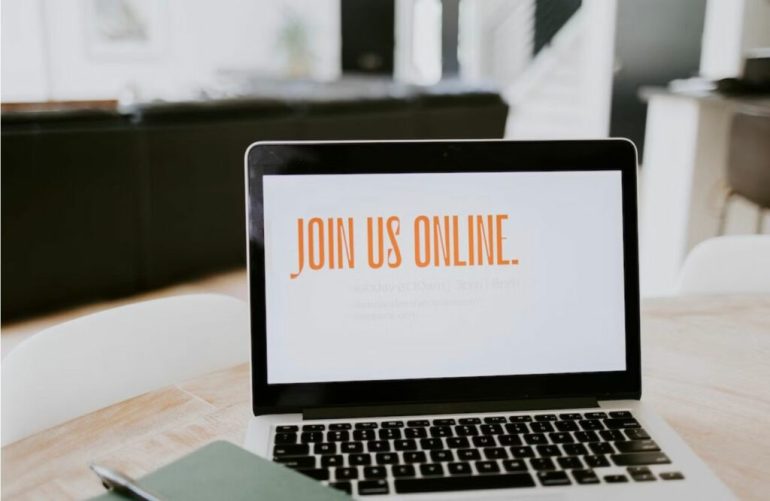[ad_1]
In 2023, if your online identity is compromised, everything is compromised. Your identity, financial life, and even your social life may suffer. Still, with so many threats out there, you cannot do much to stay safe.
Fortunately, this point of view is quite far off. The truth is that many measures, behavior patterns, and habits can keep you safe, despite how much time you spend online. With that in mind, here are the top eight tips you need to hear.

1.Make better passwords
The first thing you need to do is learn how to make better passwords.
Guessable passwords are the worst. People choose meaningful names, dates, etc., but anyone with you as a friend or following you online knows your kid’s birthday, anniversary date, and pet’s name. The same goes for your mother’s maiden name.
The key thing is that you learn how to randomize your passwords. The problem with generating random passwords, especially if you stick to the rule of having unique passwords for each platform, is memorizing them all. This concern, not laziness or lack of imagination, makes people stick to something familiar.
Fortunately, managing passwords with an app can make this much easier. With the right tool, you’ll have all your passwords in one place, ensure they’re always strong, and stop fearing online password leaks.
2. Be careful who you interact with
You need to be very careful about who you interact with online. The idea that you’re completely anonymous and safe is generally a bad practice.
Don’t accept random people as followers on social media. In the previous section, we’ve already mentioned one concern (getting insight into your personal life). However, this is the least of your concerns.
What about real-life threats? People who know your address could swat you or send you disturbing packages. These events already had horrible outcomes, which is why they’re something that you shouldn’t joke about.
It gets even worse; by posting stuff on social media, you’re actively revealing where your kids go to school, where you get your haircut, what are your dog-walking routes, etc. All of this is something that a stalker could use to compromise your life and safety.
3. Use VPN
You also want to start using VPN. This will hide your IP address from the world, provide you with an extra layer of anonymity and help you develop a more solid online presence. Remember that with your IP address, someone can start a DDoS attack against you.
With your IP address, they can also find your physical address. We’ve already explained just how dangerous this can be.
Apart from this, installing a VPN is practical advice. You get to watch content unavailable in your country, bypass government censorship, and check if the e-commerce site you’re accessing offers different prices based on location. You can even use this last part to save substantial money.
Being able to change your location, at least digitally, is a compelling notion with many practical applications. Most premium VPN plans are not expensive, and many free VPNs exist.
4. Be suspicious of any link
Phishing is a huge problem, and it most often happens when you click on a link you’ve got from an unknown source. This is a huge issue and not an easy one to solve.
Any unsolicited emails are suspicious from the start and are dangerous. The problem with phishing is that links and landing sites behind them tend to look as authentic as possible. So, check addresses and look for potential typos, missed or added hyphens, etc.
Even if you get a link from a familiar source, using your app or browser is safer. Instead of following the link to your PayPal, you can just leave the email alone and use your app or your browser to find PayPal manually. It takes a bit more time, but it’s so much safer.
The more you learn about phishing, the more careful you become. Education and awareness are the two keys to staying safe online.
5. Don’t use networks that you can’t trust
One piece of advice you will often encounter is that you should never access sensitive information from networks you don’t trust.
In the 21st century, this is quite difficult to achieve. As a digital nomad, you probably rely on free Wi-Fi for work. Many people work in coffee shops, restaurants, and even parks with free Wi-Fi. This kind of lifestyle is one of the main reasons people pick remote jobs. Also, if they change continents, they can replace their studio apartment with a villa in a luxurious part of town.
This is incredibly risky, and while there are ways to protect yourself, it’s never a smart to access your bank apps or other payment gateways this way. Just wait until you get home or use a more secure connection.
Another thing you need to avoid is unknown devices. When using someone else’s device, you never know if they have something suspicious installed on it. For instance, they could install a keylogger and then offer you their phone/laptop to check out your accounts.
6. Use two-factor authentication
Two-factor authentication is your best line of defense. With it, even losing your password is not such a huge problem. Imagine if, when logging in, another person also had to submit a code they received in an SMS or an email. Well, it will be a lot harder if they don’t have access to those.
We’re not saying that it’s impossible, only that it’s twice as hard for them to get access.
Since you’ll get a message or a notification whenever they attempt, you’ll also be alerted that your online safety is compromised. This way, you’ll be able to actively do something or take extra measures to ensure your safety in the online environment.
Another feature you could insist on is getting a notification whenever someone logs in from a strange device. For instance, if someone tries to log in to your Instagram account from a device that’s not your phone or your computer.
7. Install an antivirus software
The next thing you need to do is install antivirus software and make sure it’s updated. Antivirus software will automatically scan the files you download, prospect the links you follow, and do its best to keep you safe.
While many great free antivirus tools exist, a premium plan is not expensive either. With so much at stake, it’s more than worth it.
Even if you’ve just got it, you can start a manual scan of your computer and browser to see if there’s anything compromised.
Lastly, make sure to install antivirus both on your computer and your mobile devices. You need them both protected, and many people overlook this completely.
8. Don’t share too much information (online or offline)
Your offline activity affects your online safety, as well. How? Well, you can just as easily tell someone your password. If this happens, don’t be surprised when your account gets “hacked into.”
The same goes for leaving your phone unattended. Too many people have your email. All it takes for them to get a hold of your phone, for just a minute, to pass the two-point authentication and access your PayPal.
The same goes for leaving your laptop at the table (even at a place where you are a regular) and going to the bathroom. Leaving yourself logged in on your work computer while taking a break could also lead to problems.
Ensure you understand that your devices are a physical world vulnerability and treat them as such. It takes just a few seconds to log out, and it could save you from a world of trouble.
Taking care of your online security needs to be a personal responsibility
At the end of the day, in an era where the majority of your interactions and business dealings take place online, you cannot afford to be reckless.
Be smarter with your passwords, regularly change them, and try to make them less guessable. Always use VPN and antivirus, and be careful who you share information with. Always be suspicious of unknown devices, networks, and links.
While this won’t solve all your problems, it’s a great start to being more digitally responsible.
SOURCE: www.voiceofgh.com







